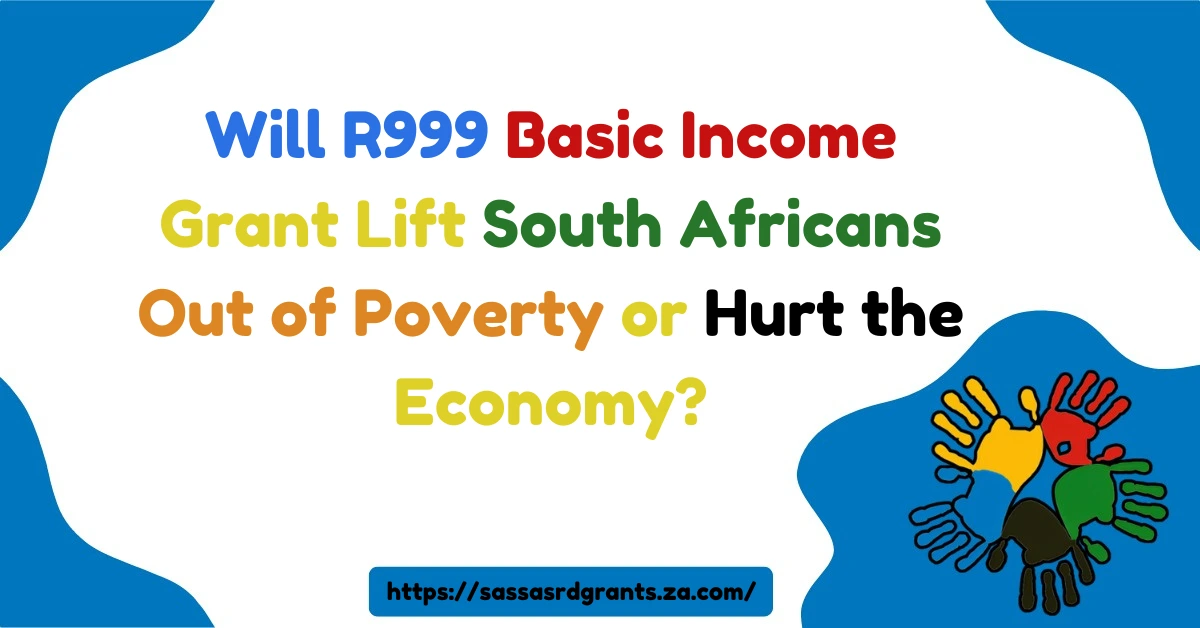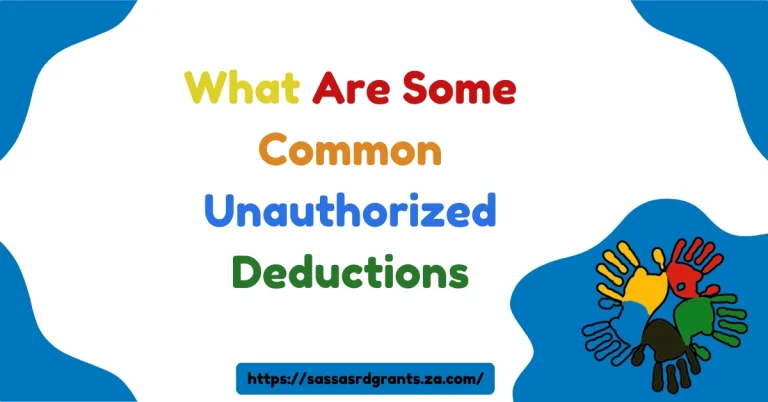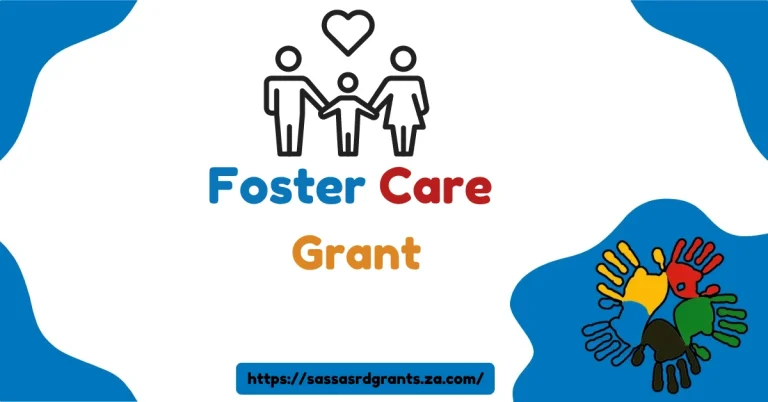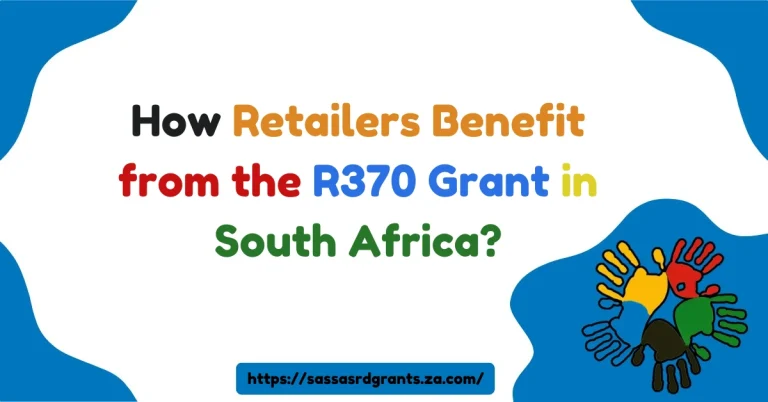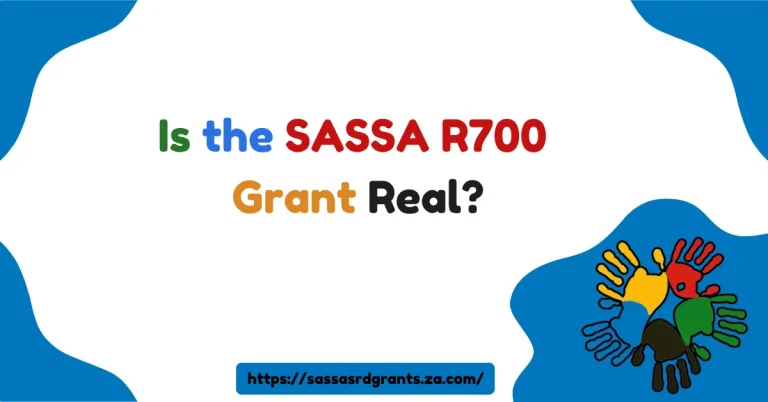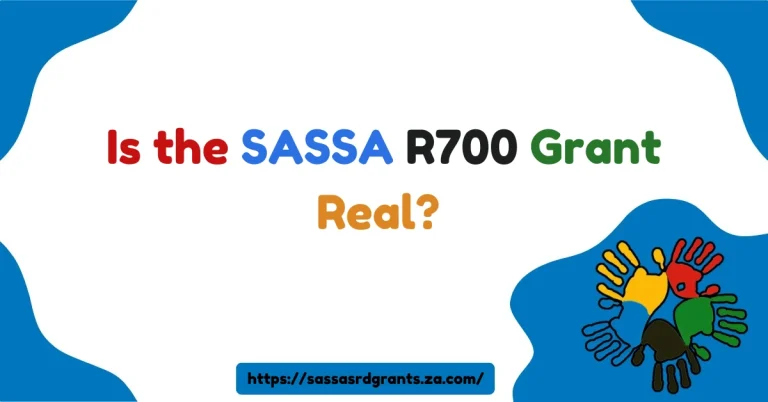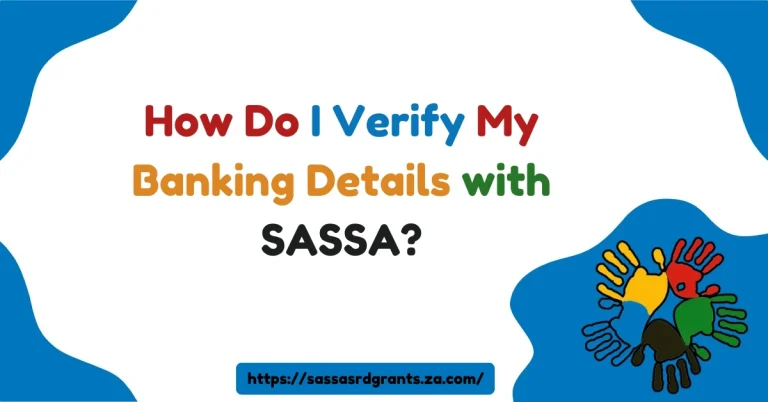Will R999 Basic Income Grant Lift South Africans Out of Poverty or Hurt the Economy?
In recent times, South Africa has faced escalating debates over a Basic Income Grant (BIG) aimed at addressing poverty and unemployment.
Some proponents advocate that an increase to R999 could offer much-needed financial stability to struggling households, yet skeptics warn about the potential economic challenges, including the risk of inflation and strain on public finances.
Let’s dive into the specifics, explore the possible outcomes of this proposal, and analyze both the benefits and the risks.
Will R999 Basic Income Grant Lift South Africans Out of Poverty or Hurt the Economy?(Quick Answer)
The proposed R999 Basic Income Grant could help reduce poverty in South Africa by providing financial support to low-income individuals and boosting consumer spending. However, it risks straining the economy through high costs, potential inflation, and increased dependency. While a larger grant offers temporary relief, sustainable solutions like job creation and economic reforms are crucial. South Africa needs a balanced approach to support citizens while ensuring economic stability and growth.
The Basic Income Grant Proposal: Background and Purpose
The concept of a Basic Income Grant isn’t new, but recent conversations around a theoretical R999 increase have sparked widespread public interest and controversy.
South Africa’s actual Social Relief of Distress (SRD) grant currently stands at R370 per month. Initially set at R350, it was adjusted in April 2024 to offer slight relief to millions who struggle to cover basic needs.
This SRD grant was meant to be a temporary measure, yet with high unemployment rates and rising costs of living, many argue for a more substantial, long-term solution.
What Exactly Is the R999 Basic Income Grant?
To clarify, there is no formal R999 Basic Income Grant in South Africa. Instead, discussions around this figure emerged from social media speculation.
The current SRD grant is considerably lower at R370, which the government supports as a temporary solution for individuals in need.
However, the public’s interest in a larger grant amount highlights the country’s pressing need for increased financial assistance to combat severe poverty and rising inflation.
Reasons Behind Calls for a Bigger Grant
Economic Hardships: Rising Unemployment and Cost of Living
The demand for an increased grant stems from undeniable realities in South Africa.
For one, unemployment remains a critical challenge, with over 8 million South Africans unable to secure work.
Additionally, the cost of essential goods like food, transportation, and housing continues to escalate, stretching household budgets to breaking points.
Potential Benefits of a Larger Grant
Supporters believe that a more significant grant, such as the proposed R999, could provide several benefits:
- Financial Relief for Low-Income Households: By offering a safety net, the grant could help citizens afford basic necessities, thereby improving living conditions.
- Increased Consumer Spending: By putting more money in the hands of consumers, local businesses might see a boost, which could, in turn, contribute to economic growth.
- Support for Job Seekers: Individuals would have more resources to look for employment opportunities, potentially reducing unemployment over time.
Financial Implications of a Larger Grant: What Would It Cost?
While an R999 Basic Income Grant may seem appealing, its implementation would come at a steep price.
Estimates suggest it would require approximately R276 billion annually, which would represent a substantial part of South Africa’s budget.
Given this hefty cost, the government would likely need to consider a few difficult financial decisions, such as:
- Raising Taxes: An increase in taxes could provide necessary funds, but might burden individuals and businesses.
- Cutting Other Public Services: Redirecting funds from other services, such as healthcare or education, may be possible but would come at a significant social cost.
- Increased Borrowing: This could lead to debt growth, potentially impacting South Africa’s credit rating and causing long-term financial challenges.
Could a Larger Grant Alleviate Poverty?
Proponents of the R999 Basic Income Grant argue that its benefits would extend beyond direct financial support, potentially fostering social stability. Advocates believe it could:
- Reduce Extreme Poverty: Providing a steady income might help families access food, healthcare, and education.
- Lower Crime Rates: Financial stability often correlates with lower crime rates, as individuals are less likely to engage in illicit activities out of economic desperation.
- Strengthen the Workforce: With greater financial resources, individuals may feel more secure and prepared to seek employment or pursue educational opportunities.
Economic Risks and Concerns: What Are the Potential Downsides?
Despite the potential benefits, economists and policymakers raise legitimate concerns regarding the sustainability of a higher grant. The main risks associated with an R999 Basic Income Grant include:
- Economic Dependence: Critics worry that individuals may become reliant on grants, potentially reducing motivation to seek employment.
- Inflationary Pressures: A sudden increase in consumer spending might lead to higher demand for goods and services, pushing up prices and reducing the grant’s actual purchasing power.
- Possible Mismanagement: If poorly administered, a larger grant could lead to waste, fraud, and even corruption, diminishing its impact.
Current Social Relief of Distress Grant: A Reality Check
South Africa’s Social Relief of Distress (SRD) grant of R370 already provides essential support to around 10 million people at an estimated cost of R33 billion annually.
While this amount is considerably less than the proposed R999, it remains a significant expense for the government and has proven to be a lifeline for millions.
The SRD grant was extended multiple times, and its continuation until March 2025 reflects its role in cushioning the economic hardship faced by millions of South Africans.
Political Shifts and the Future of Basic Income in South Africa
The recent political landscape in South Africa suggests possible changes in policies related to social grants:
- Election Impact: After the 2024 general elections, the African National Congress (ANC) lost its longstanding majority, signaling potential policy shifts.
- New Leadership: In June 2024, a new President was elected indirectly by the National Assembly. The new administration may bring fresh perspectives and policies that could affect the future of the SRD grant.
- Policy Debates: As South Africa adjusts to its new political realities, debates around social support, including the possibility of an expanded Basic Income Grant, are likely to continue. Political parties may leverage different stances on the grant in their agendas, adding to the public discourse on the issue.
My Perspective: Weighing the Pros and Cons of a Basic Income Increase
Considering both sides of the debate, I believe South Africa indeed needs to find viable solutions to alleviate poverty.
However, an increased Basic Income Grant alone cannot be seen as a one-size-fits-all solution. While it may serve as an essential safety net, any significant changes to grant amounts must be:
- Financially Sustainable: Proper funding sources need to be established to avoid excessive strain on the national budget.
- Efficiently Managed: Robust systems should be in place to reduce fraud, mismanagement, and potential waste.
- Complemented by Broader Economic Reforms: Job creation, skills development, and support for small businesses should accompany any changes to grant policies. A stronger economy can, in turn, reduce the need for extensive social grants over time.
Frequently Asked Question (FAQ’s)
Q: Is the R999 Basic Income Grant real?
A: No, the R999 grant is not an official policy. South Africa’s actual Social Relief of Distress (SRD) grant provides R370 per month to eligible individuals.
Q: How is the SRD grant funded?
A: The SRD grant is financed through South Africa’s national budget, which may involve taxes, reallocations, or loans. Increasing the grant amount would require additional funding sources.
Q: Could a higher grant reduce poverty?
A: A larger grant might reduce poverty temporarily by providing immediate financial support, but long-term solutions like job creation are essential for sustainable poverty reduction.
Q: What are the primary concerns around a bigger Basic Income Grant?
A: Key concerns include potential economic dependency, inflation, and risks related to mismanagement.
Conclusion
The conversation surrounding South Africa’s Basic Income Grant is complex and multifaceted. While a larger grant like the hypothetical R999 could bring short-term relief to millions, it also poses significant economic risks.
Ultimately, South Africa needs a balanced approach that combines targeted financial assistance with broader economic reforms.
As discussions continue, it’s crucial to seek fiscally responsible solutions that foster sustainable growth, reduce poverty, and enhance the overall well-being of the South African population.
